The 8 greatest first-person shooters I've played throughout my gaming career
The best first-person shooters can be packed with so much more than just action
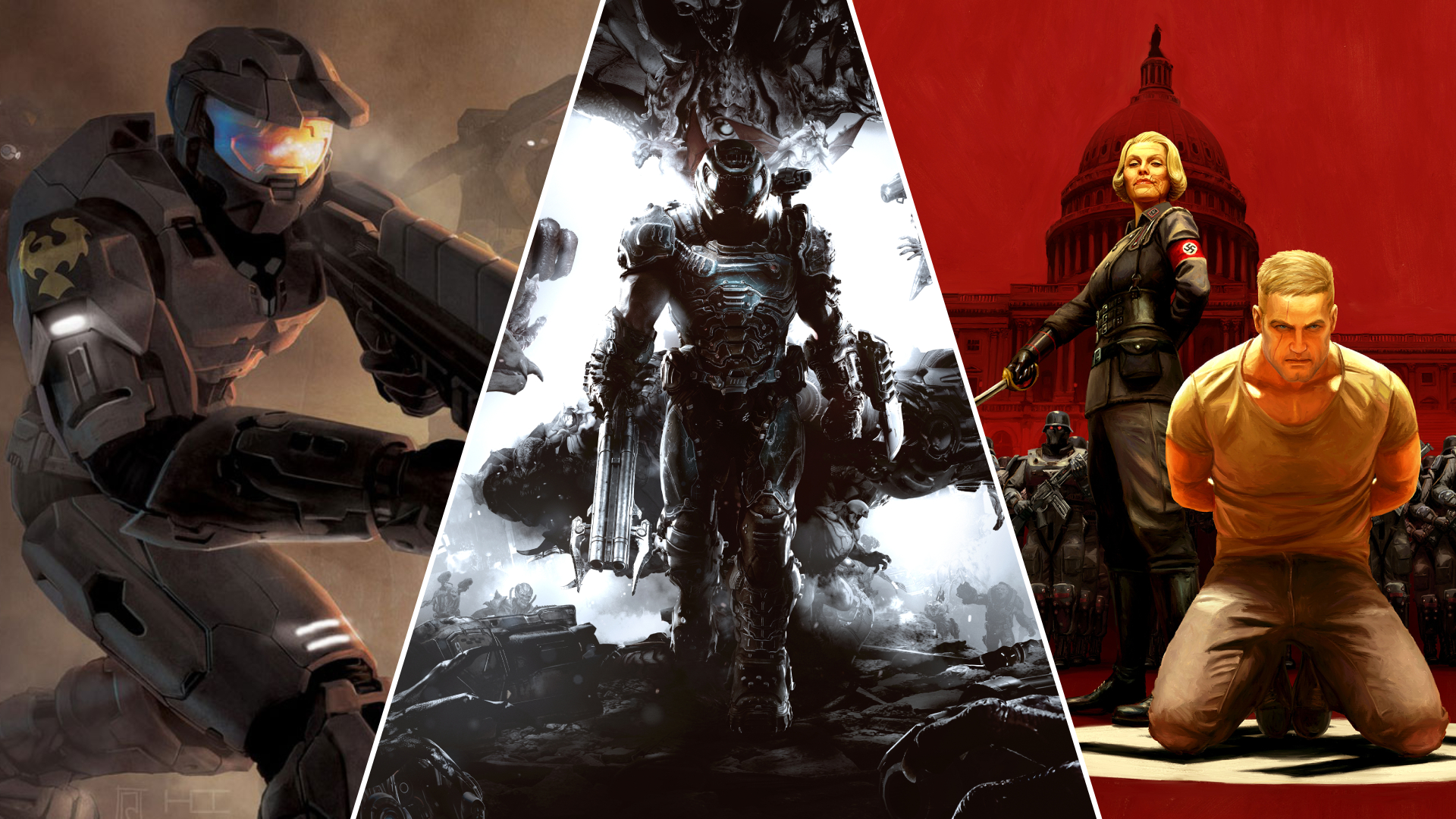
The best first-person shooters offer exhilarating escapism that puts awesomeness at the forefront. Getting caught in intense gunfights, balancing every last piece of ammunition, skillfully running or jumping around the arena as an onslaught of bullets rush towards you, and precisely popping the heads of every demon or monster you’re facing off against is the textbook definition of a good time.
But of course, not all first-person shooters need to follow the “shoot first” formula. Some are submerged in expansive RPG mechanics, others immerse the player in a slew of choices that allow them to define how they approach every situation, and very rarely, they can make thoughtful political statements. There are also those days when you just want the satisfaction of battling other players in palpitating PvP action.
And since the first-person shooter genre is one of my favorites, here’s a list of the best I’ve played. Keep in mind, this list is limited to one entry per game series. Without this rule, the proceeding ranking would be exclusively populated by the Bioshock, Doom and Halo franchises.
Wolfenstein II: The New Colossus
Not only is Wolfenstein 2: The New Colossus an excellent alternate history game with a fantastic atmosphere and claustrophobic level design that encapsulates the “one person versus an army” feeling perfectly, but the script is superb and the set pieces are crushing. Shortly after the first game’s question of “What would happen if Nazi Germany won World War II?”, we see B.J. Blazkowicz return from a five-month coma to tackle his daddy issues alongside the never-ending fight against the spreading scourge of Nazism.
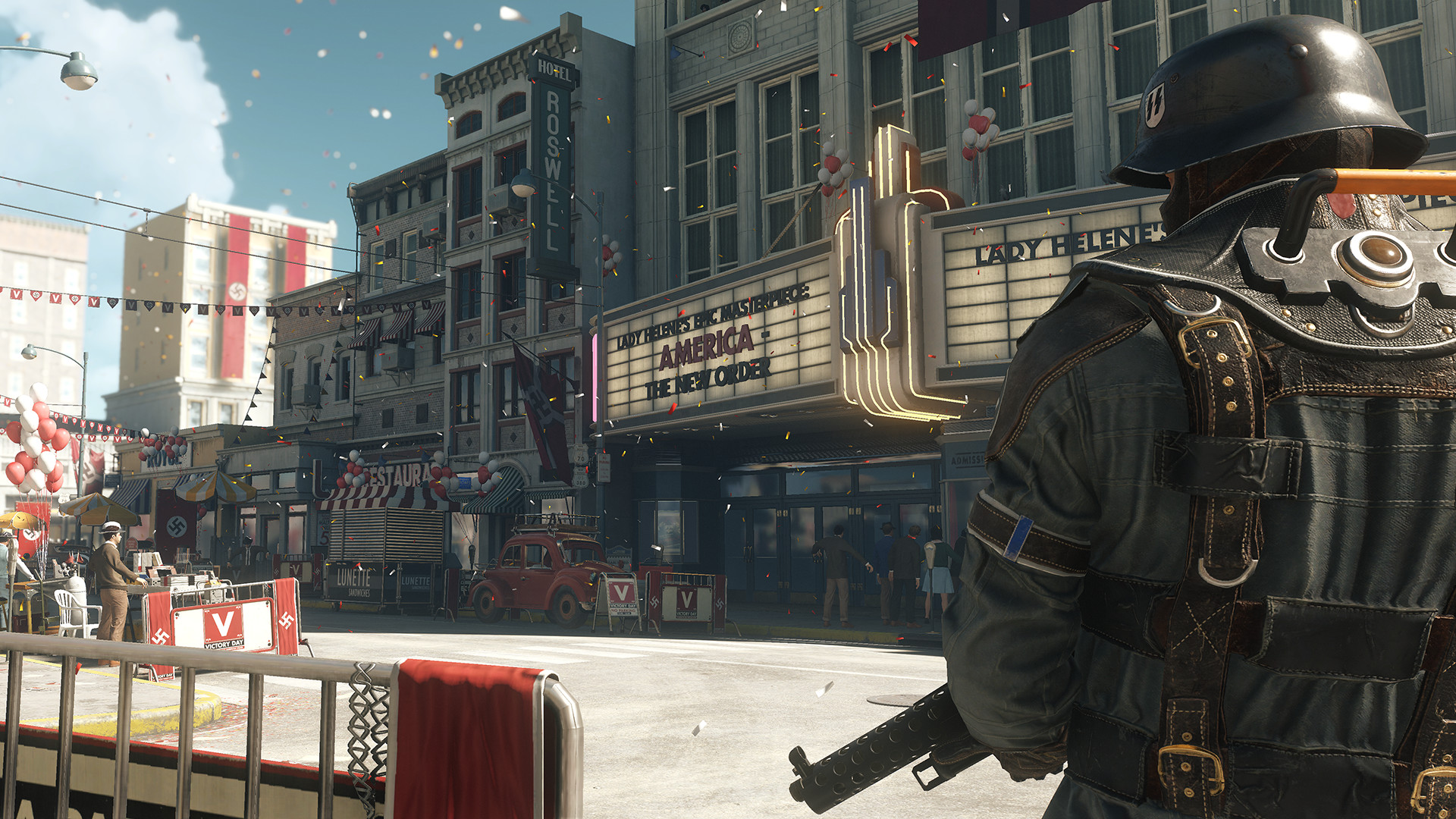
The New Colossus boasts one of my favorite narratives in gaming, and it’s submerged in memorability. Flying to Venus to pose as one of Hitler’s desperate actors, dealing with a cocky and tyrannical Nazi officer terroizing a diner through thinly veiled threats, and interacting with much of the game’s eccentric crew is genuinely unforgettable. There’s one story twist I think about constantly, but I don’t want to spoil it. All these moments coalesce into one of my favorite first-person shooters ever. However, I do wish The New Colossus had an actual final boss like the first game did.
Overwatch
Overwatch is one of my favorite competitive first-person shooters, and this is coming from someone who generally steers clear of player vs. player. I don’t find the stress from competitive games enjoyable. And as someone who doesn’t deal with other’s toxicity well, it’s hard for me to get into the mindset of craving for more. Even with games I love, like Halo, it’s difficult for me to enjoy matchmaking.
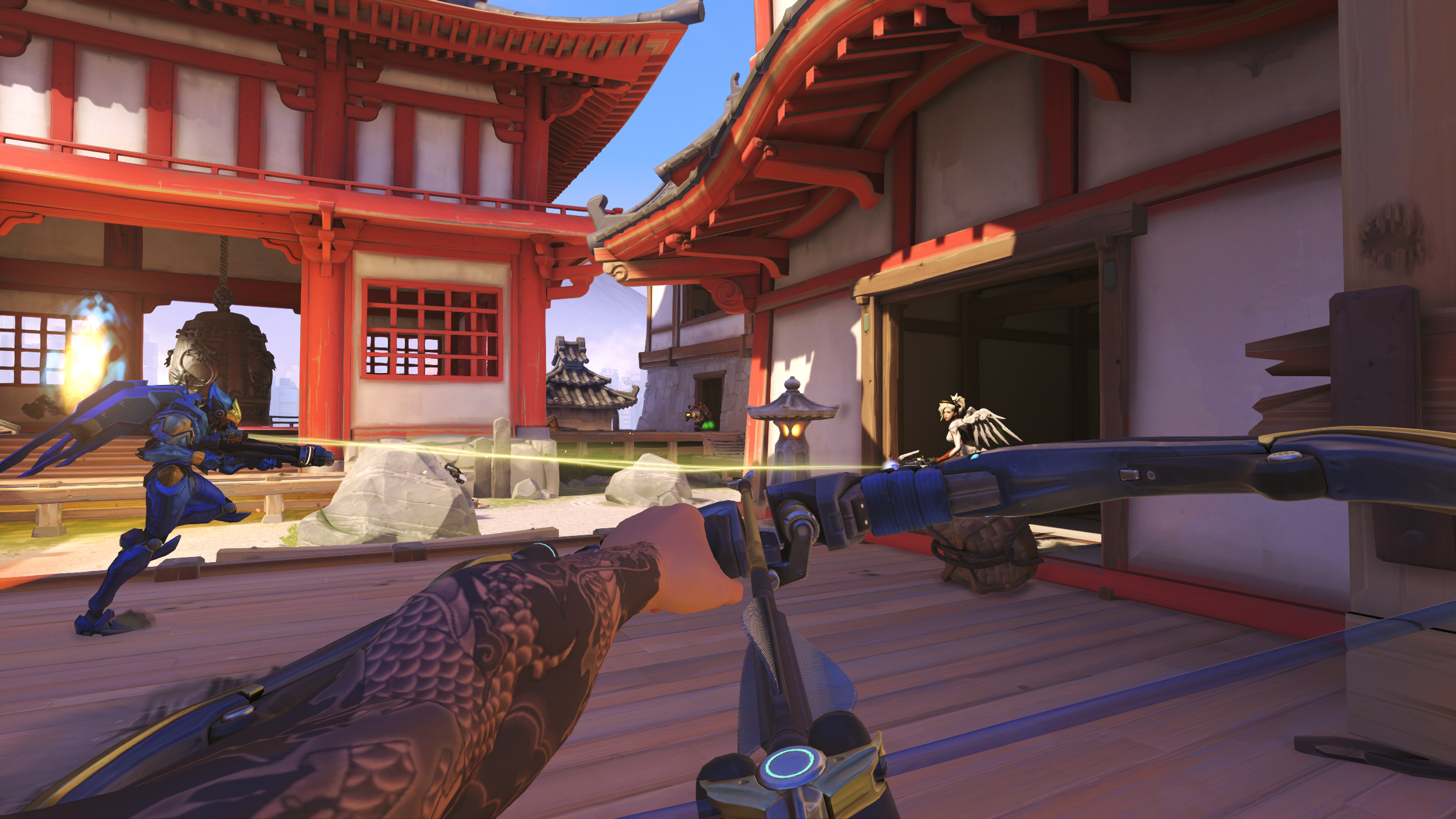
I have the same issue with Overwatch, but what makes this game standout is its attention to detail. This roster is bursting with personality, the world has tons of interesting lore (with great cinematics), and environments boast a charming style that instantly has me falling in love with every new map Blizzard Entertainment implements. I’d often find myself browsing the character customization menus just to see what new skins, voice lines, sprays and animations each Hero has. I’ve fallen in love with most of the game’s cast since its launch in 2016, especially D.Va, and they’ll never stop being important to me.
Stay in the know with Laptop Mag
Get our in-depth reviews, helpful tips, great deals, and the biggest news stories delivered to your inbox.
Although I’m not super into competition, custom games are an exception, particularly battling friends in intense deathmatches. PvP is most fun when it’s against people that you know will make the experience enjoyable. Some of my favorite Overwatch memories are when I’d congregate a large group of my buddies and stay up late shooting the heck out of each other.
Black Mesa
Half-Life is legendary. It’s often cited as one of the medium’s greatest first-person shooters, and it has been undeniably influential in shaping what we understand from the genre today. Now, I’ll be upfront: I haven’t actually played the original Half-Life. Instead, I took a trip through Black Mesa, a from-the-ground-up remake of Half-Life utilizing the Source engine. I played this shortly after its full release in 2020, and even after so many years (the original launched in 1998), it’s easy to see why this game is as special as it is.
What’s most surprising about Black Mesa is how its three acts come together to form a full journey — one with a ton of surprises throughout its 20-hour playtime. We begin with a scientist who sees an experiment go wrong at his place of work, a corporation called “Black Mesa,” where alien creatures invade and murder its inhabitants. This facility becomes a nightmare of dim corridors, monsters that jump on your face (not much unlike Alien), and a less-than-ideal amount of ammunition. It quickly turns into survival horror, although with more action-oriented elements.
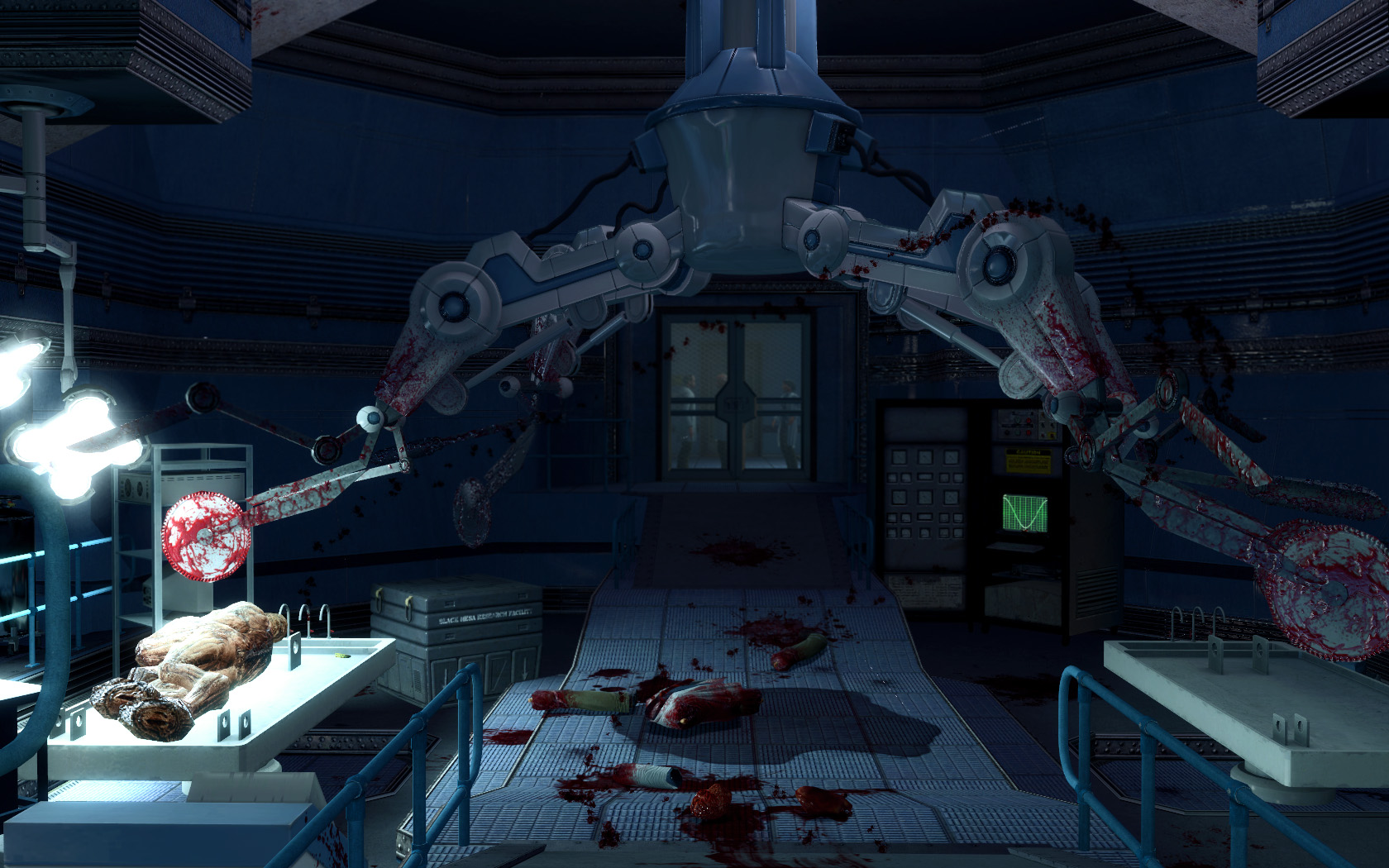
But things quickly change at the start of Act II. A government combat unit is ordered to invade the facility, clear it of any hostiles, and contain the alien threat. Now, the player is running between military bases, avoiding tanks, and shooting down helicopters in a massive all out war for survival. Weaving through deserted buildings in the savannah desert as dozens of military personnel attempt to quarantine you is exhilarating, and most importantly, it feels earned. A big chunk of this game is spent sneaking through a research facility in an attempt to escape the terrors of this invading alien threat, so when the game shifts from survival horror to full on action-packed shooter, the transition feels perfectly executed.
Things get even wilder when the player finds themselves transported to the alien planet, Xen. This is where we learn that the creatures we’ve been fighting are a helpless species that have been brainwashed by a separate alien entity. Now, it’s up to the player to not only get out of this mess alive, but save the aliens from this mind controlling monster. And how could I forget? Joel Nielsen’s soundtrack is a phenomenal mix of head-bopping action and emotional symphonies. Black Mesa is a frenzied ride — and every moment excellently builds off of the last.
Deus Ex: Human Revolution
Deus Ex: Human Revolution is about player-choice amidst a deep corporate and government conspiracy. We follow Adam Jensen, a security officer employed by a company called Sarif Industries, who gets shot in the head by mercenaries invading his place of work. His ex-girlfriend, along with many other witnesses, are senselessly murdered in the process. Against Jensen’s will, he’s taken to be mechanically and electrically augmented in an attempt to “save” his life after sustaining those fatal injuries.
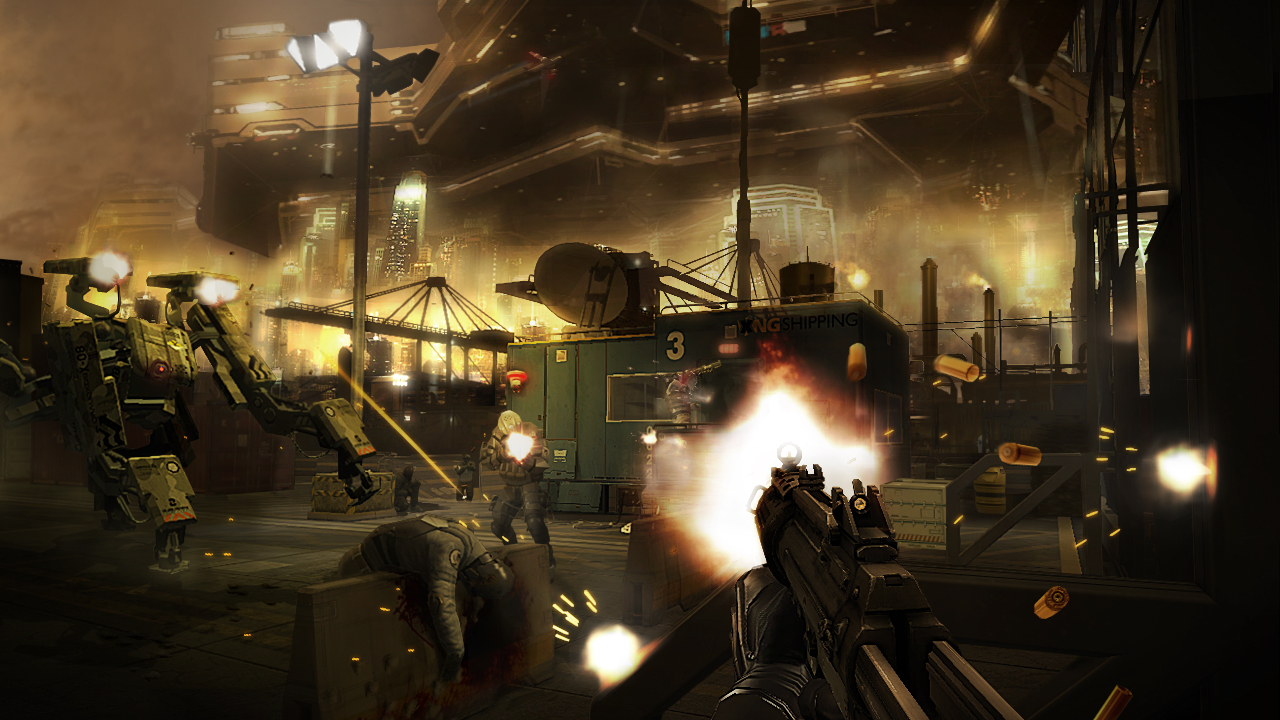
The iconic “I didn’t ask for this line” isn’t just a fun meme, but it’s also indicative of the game’s primary struggle. Humanity is wrapped up in bigotry, and Human Revolution showcases a classic science fiction struggle between person and machine. Adam Jensen has had an aspect of the world forced onto him without his consent, and as he attempts to come to terms with his new augmentations, he witnesses the terrors of this divided world first-hand. But it’s not as simple as people-hating machines; augmentations are an incredible source of power, and people with them used that power to exert dominance over those without. The struggle is one that’s wrapped up in uncertainty; the conflict only gets more complicated as time goes on. Beyond that, Human Revolution is a great first-person RPG with exciting progression systems, meaningful choices that can shape the outcome of your playthrough, and many valuable character interactions that should not be missed.
Dishonored
Dishonored’s violent, senseless, and disease-invested world is my most frequent inspiration for the Steampunk setting, presenting an alternate Victorian era where technology developed in a wildly different direction. This world features not-so-modern technology, with the player often utilizing crossbows and swords (even though their designs are funky), yet its utilization of electricity feels like something out of science fiction. Monorails, autonomous machines, and electrical wiring are all common to the setting. Similar to many Steampunk worlds, the atmosphere brought about by dirty cobblestone streets, copper piping, clockwork machinery, and steam engines is as grimey as it is evocative.
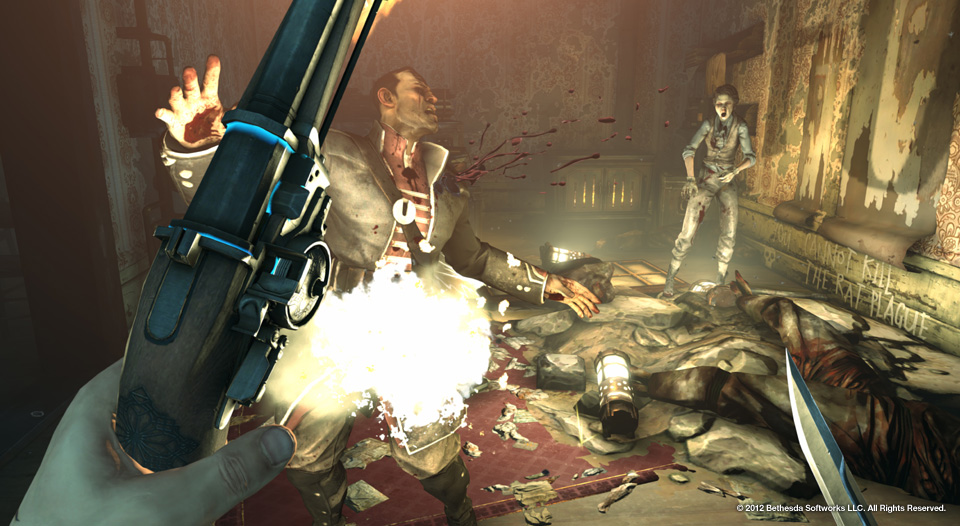
Beyond Dishonored’s incredibly realized setting, this is a game that presents the player with stealth-oriented action throughout tons of open levels. Your choices aren’t limited to deciding whether or not someone lives or dies. Every path, rooftop and alley you explore could be tackled in a number of ways due to the player’s arsenal. Teleporting to bypass certain sections entirely, possessing rats to sneak past enemies, and freezing time at just the right moment to perfectly coordinate attacks on foes, regardless of lethal or non-lethal, is a big part of what makes Dishonored so fun.
Doom Eternal
Doom is known for its grotesque violence and brutality, along with clear inspiration from the aesthetics found in heavy metal album covers and 1980’s demonic iconography. Before I played the series, I expected a child’s vapid interpretation of hell, one that reeks of toxic masculinity. And although there are plenty of pentagrams and giant skulls everywhere, there’s so much more to Doom than just mindless gore. Doom Eternal boasts the most exhilarating first-person shooter campaign out there, and although I always expected it would be a game about slaughtering demons to atmospheric metal tracks, the execution on all fronts is superb.
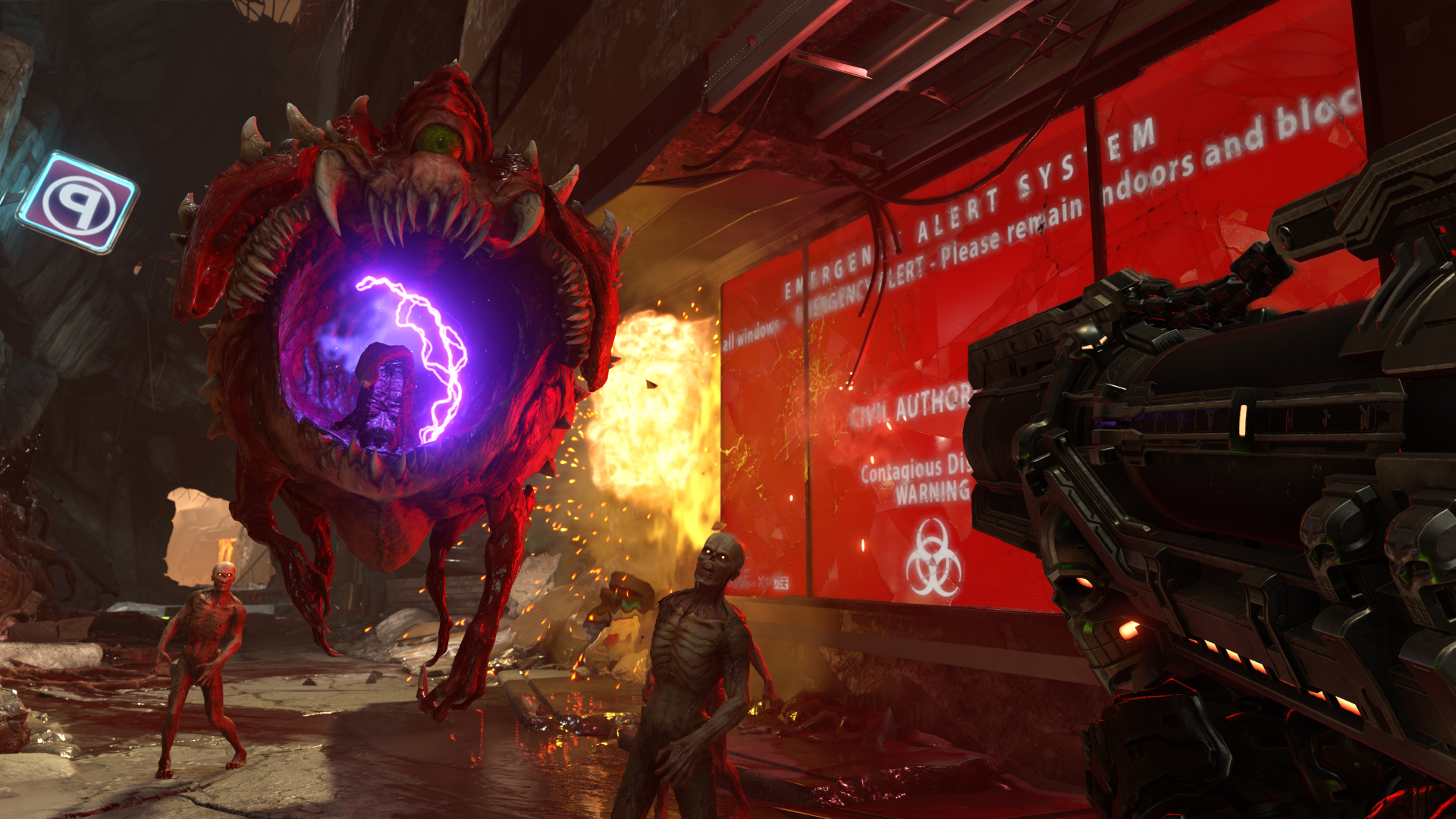
And on Nightmare difficulty, Doom Eternal is incredibly demanding. Every movement and attack needs to be perfectly coordinated beyond enjoying the sensation of tearing demons apart. Utilizing a flamethrower isn’t just fun, but it’s a strategic way to acquire armor. Hacking monsters to bits with a chainsaw is definitely satisfying, but it’s a necessity to regain ammo. Weapons aren’t just a joy to swap between, but you’ll often feel forced to use every last shot to get through an encounter, sometimes even completely emptying your weapons to survive. Glory kills, which are extravagant ways to murder demons when close to them, aren’t just frickin’ awesome, but they’re also the best way to replenish health. Throwing grenades is always dopamine-infused, yet they’re vital for survival, usually when the player is overwhelmed and needs to turn a bunch of demons to ice. Failure to keep all these systems in mind, along with the new dash and hookshot, will end in death. Doom Eternal is a brilliant, action-packed trip. And of course, Mick Gordon's chaotic, atmospheric soundtrack is one of the best out there.
See our Doom Eternal review.
Bioshock
Bioshock isn’t just an awesome first-person shooter submerged in one of gaming’s most evocative settings, but the narrative is a rollercoaster of phenomenal twists and striking imagery. How this game connects to its two fantastic sequels is equally unforgettable, along with the ways in which System Shock inspired this spiritual successor and ultimately created one of the greatest video game series out there.
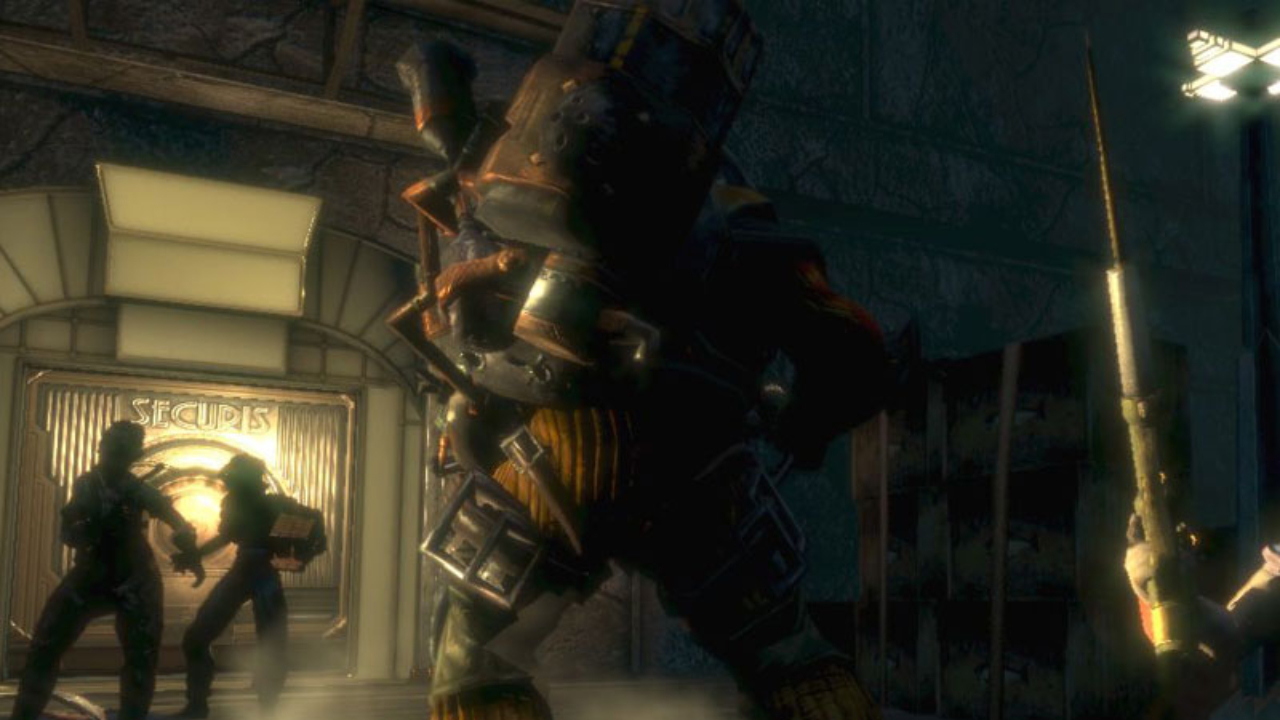
Rapture oozes atmosphere with its dark art deco aesthetic wrapped up in a vintage dystopian reflection of the mid-1900s. Although this massive underwater city is completely abandoned, every moment is a powerful shadow of its former glory, with the player now trapped in the terrifying remains of a once-bustling metropolis.
Bioshock’s Plasmid system offers a diverse arsenal of unique abilities that make gunfights and traversal in Rapture dynamic. Beyond the weapons the player acquires, these gameplay elements, along with the focus on difficult encounters that encourage strategy beyond running-and-gunning, are part of the reason why this is the perfect action horror first-person shooter.
Halo 3
Halo 3 might seem like another first-person shooter, but the importance of its ideas cannot be understated. Beyond its incredible campaign and great competitive matchmaking, Halo 3 feels like a community experience first and foremost. I’ll never forget making friends through Halo 3’s Custom Games system and jumping into Forge to build stuff together using the assets available. Creating little bases, using them to battle each other, and making up games with our own imaginary rules sends waves of nostalgia down my spine. This is one of my earliest memories of role playing, as the other kids and I would craft environments and mess around with the creative tools for us to tell stories. I even remember having an in-game wedding with another player.
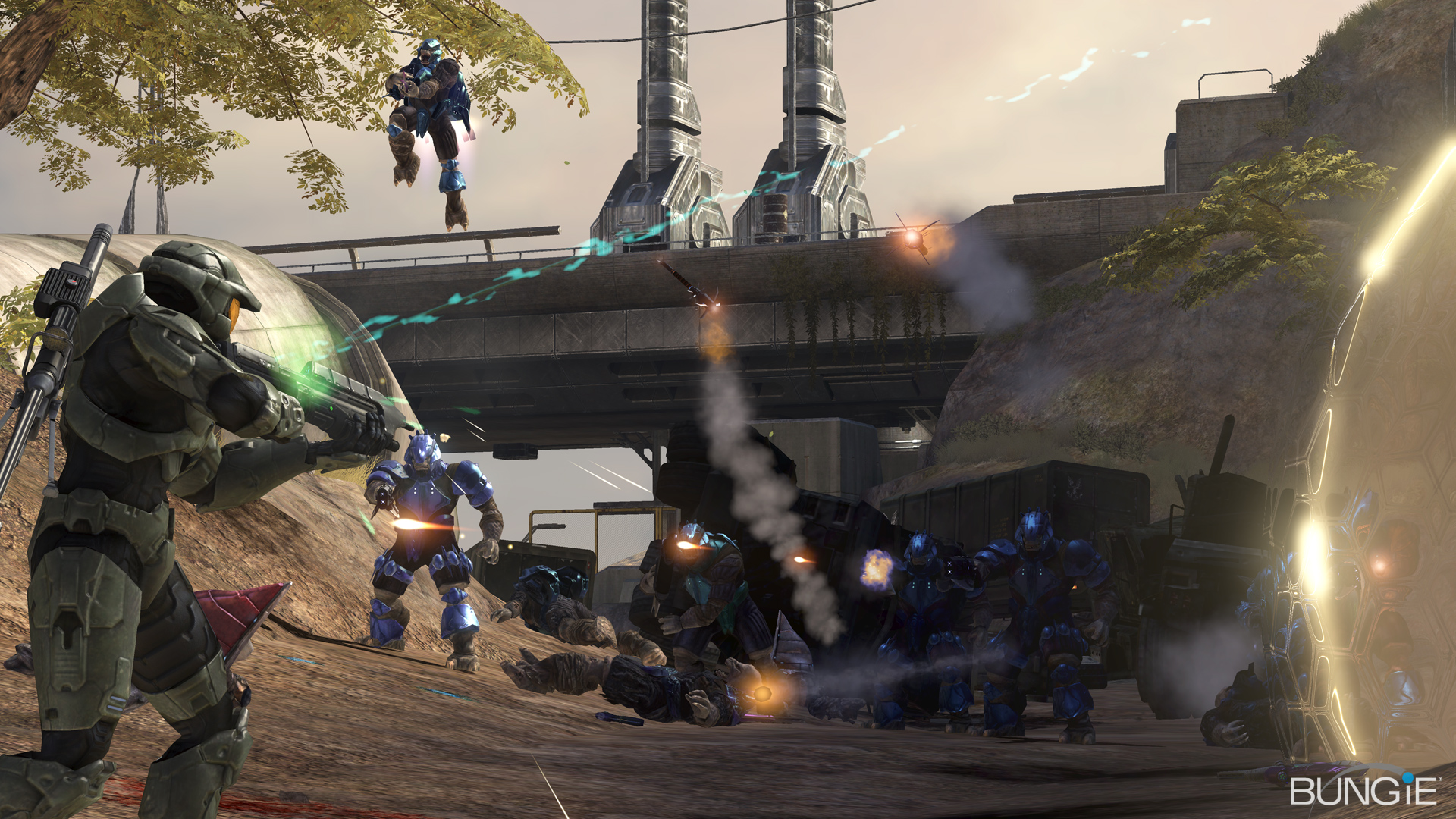
Outside of just creating our own maps, experiencing the creative work of others was wonderful. For example, playing Cops & Robbers allowed us to hop on mongeese and chase the other team down. A special infected mode strewn throughout custom maps impelled us to run away from zombie players. And of course, there were tons of other weird little things, including a trash compactor mode where players would be at the bottom of a pit and forced to dodge giant vehicles or other assets as they were catapulted down a chute.
These memories with Halo 3 shaped how much I value community-driven games. When I think about LittleBigPlanet and Minecraft, which are some of my most beloved gaming experiences ever, it’s clear that the desire to create and experience the creations of others can be linked to Halo 3 at the earliest. Games that focus on linear journeys are lovely, and obviously, this is a game that boasts an awesome campaign, but I always find myself most enchanted by the titles that focus on experiences fueled by the player. Halo 3 is one of those games, and my most loved memories are directly tied to Custom Games and Forge.

Self-described art critic and unabashedly pretentious, Claire finds joy in impassioned ramblings about her closeness to video games. She has a bachelor’s degree in Journalism & Media Studies from Brooklyn College and five years of experience in entertainment journalism. Claire is a stalwart defender of the importance found in subjectivity and spends most days overwhelmed with excitement for the past, present and future of gaming. When she isn't writing or playing Dark Souls, she can be found eating chicken fettuccine alfredo and watching anime.
